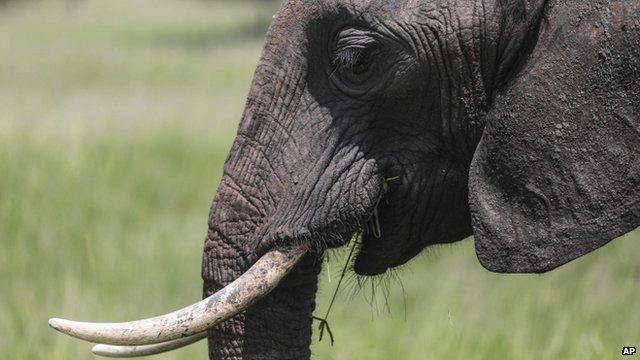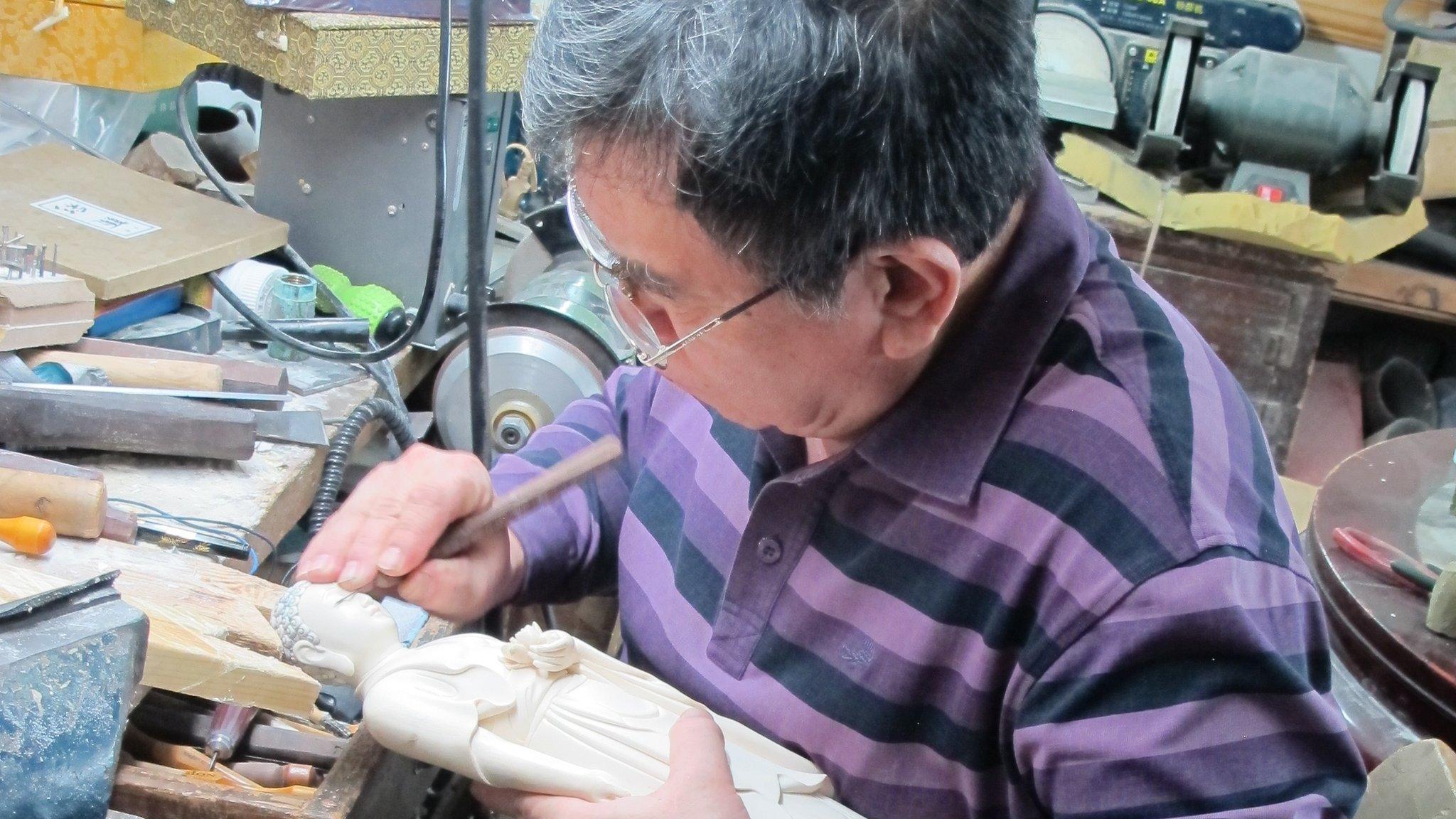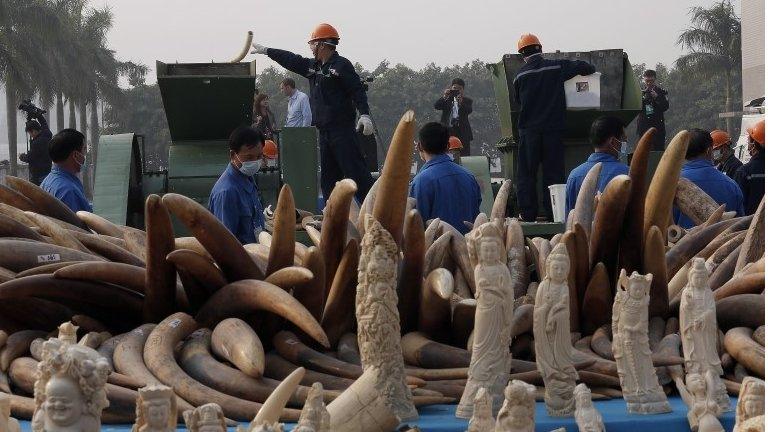China imposes one-year ban on ivory imports
- Published

The African elephant population has been severely reduced because of hunting
China has imposed a one-year ban on the import of ivory, amid criticism that demand among Chinese consumers is fuelling poaching in Africa.
The announcement was made by the State Forestry Administration, with officials saying they hoped it would be a first step towards protecting wild elephants.
Conservationists, external have warned the animal could be wiped out in parts of Africa in the next few years.
China is the world's largest importer of smuggled tusks.
However, the government says it has stepped up efforts to target illegal trading, which has been fuelled by a desire for ivory from an increasingly affluent population.
It is hoped the temporary ban on imports, which came into effect on Thursday, will help reduce demand for African tusks.
According to state media, a government official said China would evaluate the effect on elephant protection before taking further, more effective steps.
Criminal gangs
The Convention on International Trade in Endangered Species (Cites) banned the ivory trade in 1989, but China is allowed to trade domestically and has around 150 licensed shops.
Six years ago, the government was also given permission to import one consignment of more than 60 tonnes of ivory from Africa.
Conservationists say this has fuelled demand and has led to an underground trade, with criminal gangs slaughtering elephants for Asian markets.
Earlier this month, broadcaster David Attenborough was one of several signatories of an open letter, external to Chinese President Xi Jinping.
The letter called on the country's leader to outlaw the buying and selling of ivory completely and to provide Chinese citizens with information on the issue.
- Published13 February 2014
- Published18 November 2013

- Published6 January 2014
